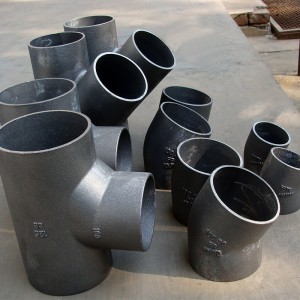- Afrikaans
- Albanian
- Amharic
- Arabic
- Armenian
- Azerbaijani
- Basque
- Belarusian
- Bengali
- Bosnian
- Bulgarian
- Catalan
- Cebuano
- China
- China (Taiwan)
- Corsican
- Croatian
- Czech
- Danish
- Dutch
- English
- Esperanto
- Estonian
- Finnish
- French
- Frisian
- Galician
- Georgian
- German
- Greek
- Gujarati
- Haitian Creole
- hausa
- hawaiian
- Hebrew
- Hindi
- Miao
- Hungarian
- Icelandic
- igbo
- Indonesian
- irish
- Italian
- Japanese
- Javanese
- Kannada
- kazakh
- Khmer
- Rwandese
- Korean
- Kurdish
- Kyrgyz
- Lao
- Latin
- Latvian
- Lithuanian
- Luxembourgish
- Macedonian
- Malgashi
- Malay
- Malayalam
- Maltese
- Maori
- Marathi
- Mongolian
- Myanmar
- Nepali
- Norwegian
- Norwegian
- Occitan
- Pashto
- Persian
- Polish
- Portuguese
- Punjabi
- Romanian
- Russian
- Samoan
- Scottish Gaelic
- Serbian
- Sesotho
- Shona
- Sindhi
- Sinhala
- Slovak
- Slovenian
- Somali
- Spanish
- Sundanese
- Swahili
- Swedish
- Tagalog
- Tajik
- Tamil
- Tatar
- Telugu
- Thai
- Turkish
- Turkmen
- Ukrainian
- Urdu
- Uighur
- Uzbek
- Vietnamese
- Welsh
- Bantu
- Yiddish
- Yoruba
- Zulu
Oct . 10, 2024 11:15 Back to list
regular gas boilers
Understanding Regular Gas Boilers Functionality and Benefits
When it comes to home heating solutions, regular gas boilers have been a staple for many households. These systems, often referred to as conventional or traditional boilers, offer a reliable and efficient way to provide warmth and hot water. In this article, we will delve into the functionality of regular gas boilers, their advantages, and considerations for homeowners contemplating their installation or upgrade.
What is a Regular Gas Boiler?
A regular gas boiler is designed to work indirectly with hot water storage tanks and is often found in homes that utilize a traditional heating setup. This type of boiler heats water in a separate cylinder, which is then stored until it’s needed, allowing for a consistent supply of hot water for showers, baths, and other domestic uses.
Components of a Regular Gas Boiler 1. Boiler Unit The heart of the system, where gas combustion occurs to produce heat. 2. Hot Water Cylinder A separate tank that stores heated water, allowing for immediate access when needed. 3. Cold Water Feed Tank Typically located in the loft, this tank feeds cold water into the hot water cylinder.
How Does it Work?
The process begins with the boiler igniting gas to produce heat. This heat is transferred to the water within the heat exchanger. The hot water then circulates to the hot water cylinder, where it is stored until drawn for use. When there is a demand for hot water, it is readily available, making regular gas boilers particularly suited for households with higher hot water requirements.
Benefits of Regular Gas Boilers
1. Higher Hot Water Demand One of the standout benefits of regular gas boilers is their ability to supply multiple hot water outlets simultaneously. This makes them ideal for larger families or homes with multiple bathrooms.
3. Durability Generally, regular gas boilers are built to last. With proper installation and regular servicing, they can sustain reliable performance for many years.
regular gas boilers

4. Systems Integration Regular gas boilers can be integrated with other systems, such as solar water heating, enhancing their overall efficiency and sustainability.
5. Proven Technology With decades of use, regular gas boilers are well-studied and understood, meaning parts are readily available, and skilled technicians are familiar with their maintenance and repair.
Considerations for Homeowners
While regular gas boilers are a reliable choice, there are several factors homeowners should consider before installation
1. Space Requirements Regular gas boilers require more space than their combi counterparts since they involve separate hot water cylinders and tanks. Ensure you have adequate installation space.
2. Cost of Installation The initial cost of purchasing and installing a regular gas boiler can be higher than other types. However, consider the long-term efficiency and savings when making your decision.
3. Maintenance Needs Regular servicing is critical to ensure optimal performance. Homeowners should schedule annual inspections and be aware of the signs it may need attention, such as unusual noises or inconsistent heating.
4. Gas Supply Ensure your home has access to a reliable gas supply, as this is essential for a regular gas boiler’s functionality.
5. Environmental Impact With growing concerns over carbon emissions, consider the environmental implications of using gas as a fuel source. You may explore hybrid systems or alternative energy solutions depending on your values and long-term strategies.
Conclusion
Regular gas boilers represent a solid heating solution for many households, particularly those with high hot water demands. Their proven efficiency, capacity for simultaneous hot water usage, and history of reliability make them a favorable choice among homeowners. As with any major home system, thorough research, consideration of personal needs, and consulting with heating professionals will help determine if a regular gas boiler is the right fit for your home. Understanding the characteristics and requirements of these systems will empower homeowners to make informed decisions, ensuring comfort and efficiency in their living spaces for years to come.
-
Premium Cast Iron Water Main Pipe: Durable, Corrosion-Resistant
NewsAug.03,2025
-
Durable Cast Iron Water Mains | AI-Optimized Systems
NewsAug.02,2025
-
High-Efficiency Propane Boiler for Baseboard Heat | Save Energy
NewsAug.01,2025
-
Premium Source Suppliers for Various Gray Iron Castings
NewsJul.31,2025
-
Durable Cast Iron Water Main Pipes | Long-Lasting
NewsJul.31,2025
-
High-Quality Cast Iron Water Main Pipe for Durable Infrastructure
NewsJul.30,2025


